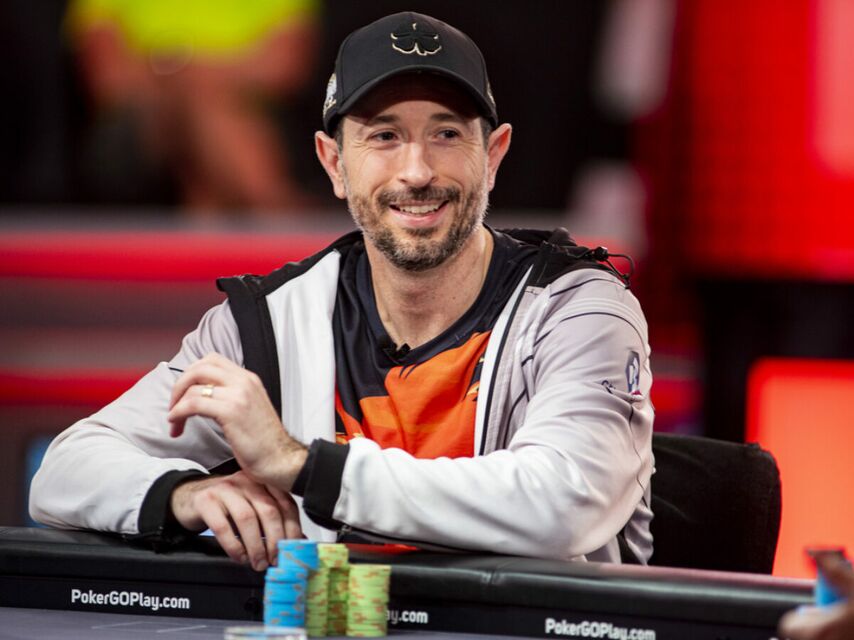The Players Championship, the most prestigious $50,000 mixed games tournament, kicked off on June 18th. Daniel Cates, the winner of the last two years, disguised himself as the Terminator, and when he busted out, he completed the cosplay with the classic exit line "I'll be back."
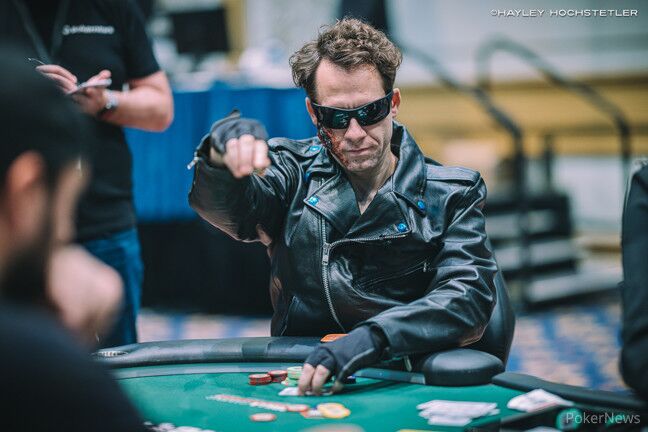
Early chip leaders included Scott Seiver and Viktor Bloom.
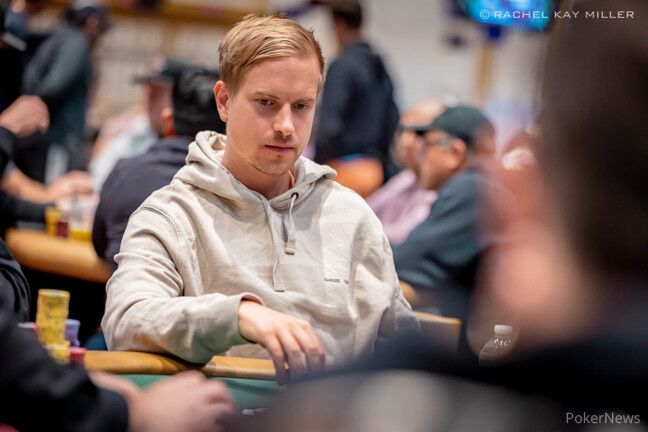
...but both were beaten by Matthew Ashton, who won an absurd hand of 2-7 single draw. Ashton raised from the button and the BB called and drew two cards. Ashton stood pat.
Apparently, the BB player liked the received cards, and he made a massive lead of three pots. Ashton responded by reraising it 3x on top of that bet. After a little thought, the opponent made a call, but he did not beat the second nuts shown by Ashton.
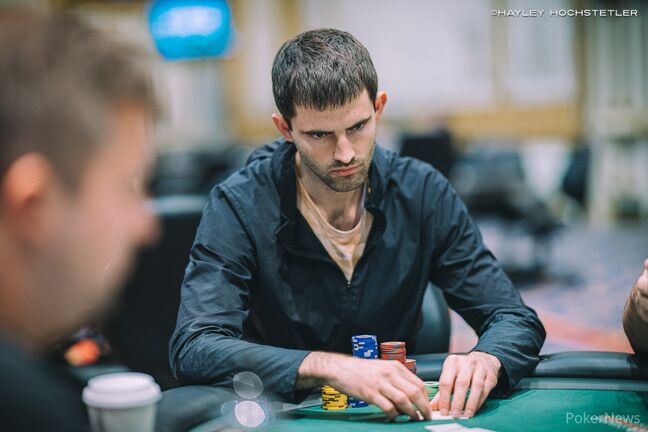
Until the end of the day, Matthew was one of the chip leaders, but then he lost a huge pot in PLO to Phil Ivey. Phil squeezed to 26,000 with rainbow after a raise and call, and got two calls. On the flop Ashton bid 32,000 and Ivey and Greg Mueller called.
Turn – . Ashton with the nut flush draw and a gutshot thought and bet the pot. Ivey shoved with only top pair and a gutshot. Mueller folded. Phil hit a straight on the river and won a giant pot. Ashton, however, still has quite a comfortable stack.
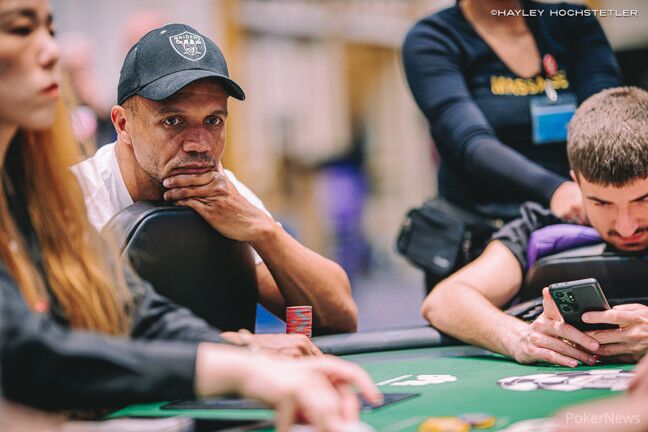
Josh Arieh finished the first day as a chip leader with 1,088,000. Ivey was second with 955,500 and James Obst was third with 929,500. Dmitry Urbanovich moved on to the second day with a short stack – 158,500.
Late registration continued until the evening of the second day. The total number of entries in the tournament reached 99.
From Phil Hellmuth's point of view, one of the highlights of the second day was Ben Yu's call against him in no-limit hold'em.
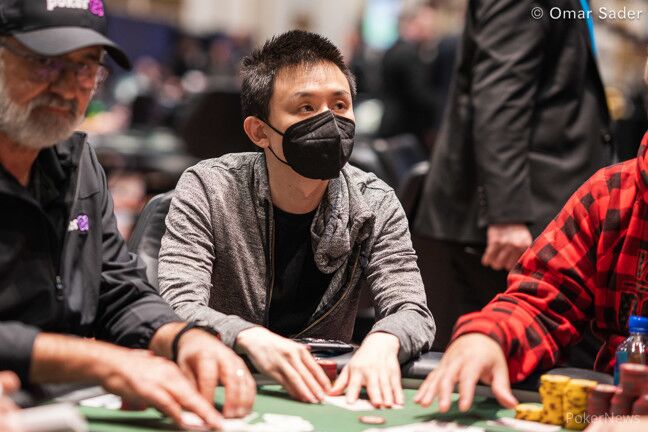
On the flop Ben Yu bet 7,000 from the button and was check-raised to 28,000 by Hellmuth in the big blind. A call followed. On the turn both players checked, and on the river , Hellmuth bet 62,000 and got called by . Phil showed a bluff with and praised the opponent for a great call.
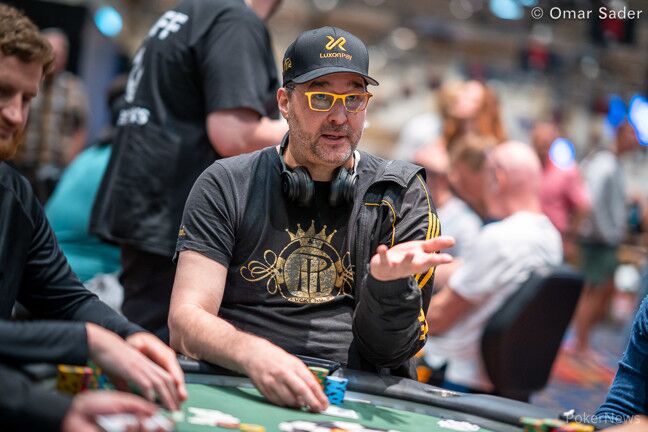
On the third day, 32 players moved. In the group of leaders – James Obst – 2,972,000, Daniel Alaei – 2,064,000, Phil Ivey – 1,655,000, and Talal Shakerchi – 1,598,000. Dmitriy Urbanovich also played well, rising to 1,196,000. Unfortunately, the next day, his luck turned around, and Dmitry busted out shortly before the money, in 18th place.
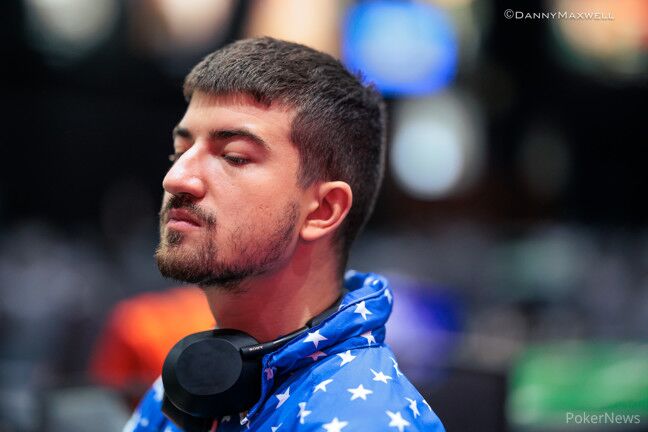
Hellmuth showed fantastic resilience for his tournament life. He played short stack all day, at times the shortest of all, but refused to bust out. At one point in no-limit hold'em, he even limped in with two tens and folded to a standard isolating raise from Ivey (who had KQs). Whether Razz specialist Ray Dehkharghani took advantage of his tight play or simply overestimated his hand, we will never know, but the hand played by these players in Pot-Limit Omaha caused very polarized opinions, including in the GT editorial chat.
Hellmuth raised to 55,000 with from early position, Dehkharghani defended in the BB (very suitable cards for a Razz pro). The hand came with an interesting blind structure of 10,000/15,000 with an ante in the BB of another 15,000, which may explain Phil's loose open in an effective stack of around 32bb.
Flop was checked. On the turn Dehkharghani check-called the 60,000 bet.
River – : Both get a full house. Dehkharghani checks. Hellmuth decides to make a tiny bet of 50,000. The opponent went all-in in response. Needing to call for 300,000, Hellmuth thought for six minutes and concluded that there are bigger full houses in Villain's range – and folded. Moreover, to get into the money at that time, you needed to survive only two more bustouts!
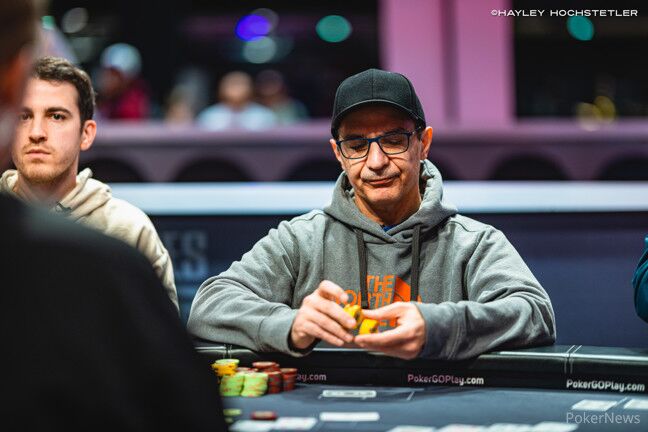
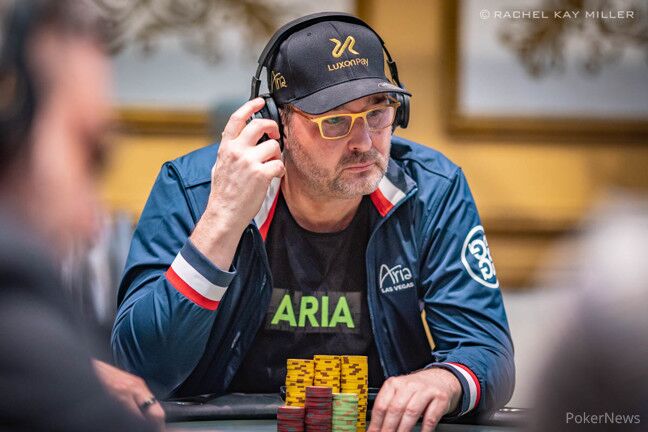
After a while, Phil did end up getting his double up by calling Dehkharghani's all-in. It happened at the same point on the money bubble in a single-draw game: Hellmuth got it in with 9-high, and his opponent drew one card, having a draw for a seven, but did not improve.
Barbero busted out on the bubble. In Pot-Limit Omaha, Talal Shakerchi, who played in the usual imposing style, raised from a hijack with . Barbero 3-bet 225,000 from the button with some banal strong hand, leaving himself 100,000. Shakerchi decided to gamble, pushed all-in, and made two pair.
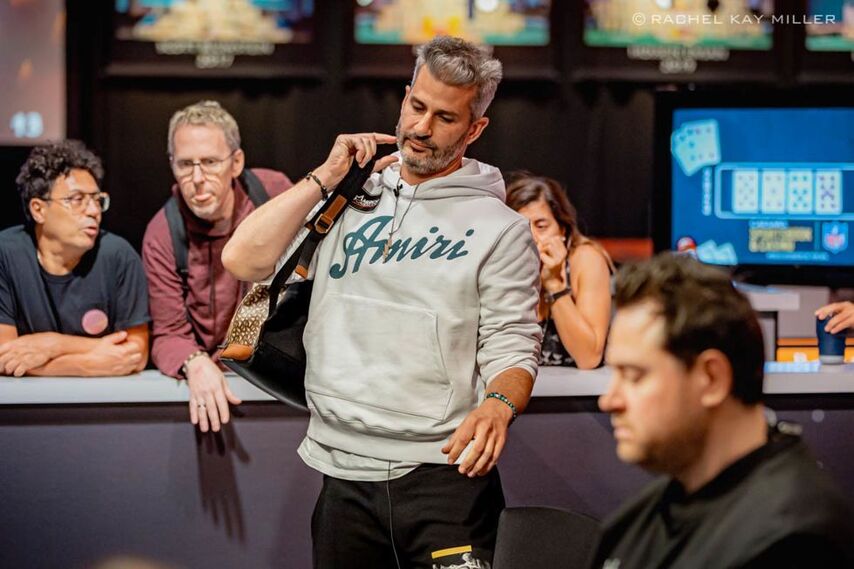
Hellmuth ended up being eliminated in 14th, adding another cash to his WSOP in the money record, as 12 players moved on to Day 4. Matthew Ashton was in the lead with 4,450,000. Shakerchi was third with 3,430,000 and Phil Ivey was fifth with 3,135,000.
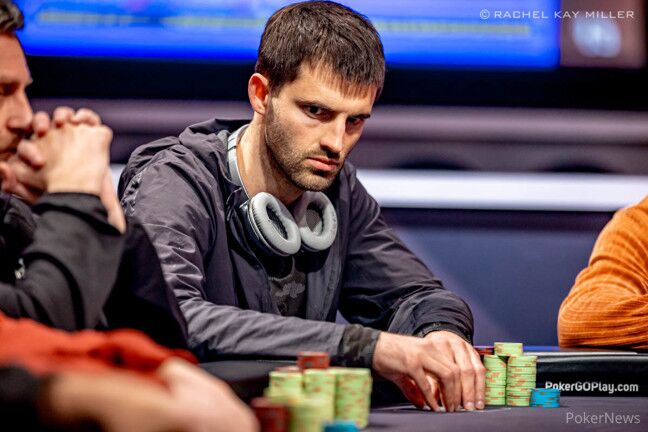
By 5:30 in the evening, the remaining eight people sat at the same table. The leaders were the same – Ashton, Obst, Ivey, Shakerchi. Before dinner, they played without any bustouts, but after eating, two knockouts were made by Ashton. He knocked out one of the short stacks in stud and defeated Dehkharghani in single draw. Phil Ivey was the last to leave the tournament that day. With the blinds at 40,000/80,000 in no-limit hold'em, Ivey shoved for 1,500,000 with a pair of treys, and Shakerchi called with AJs on the button. An ace came on the flop, a flush on the river, Shakerchi comes out on top and Ivey goes to the payout desk for $228,793.
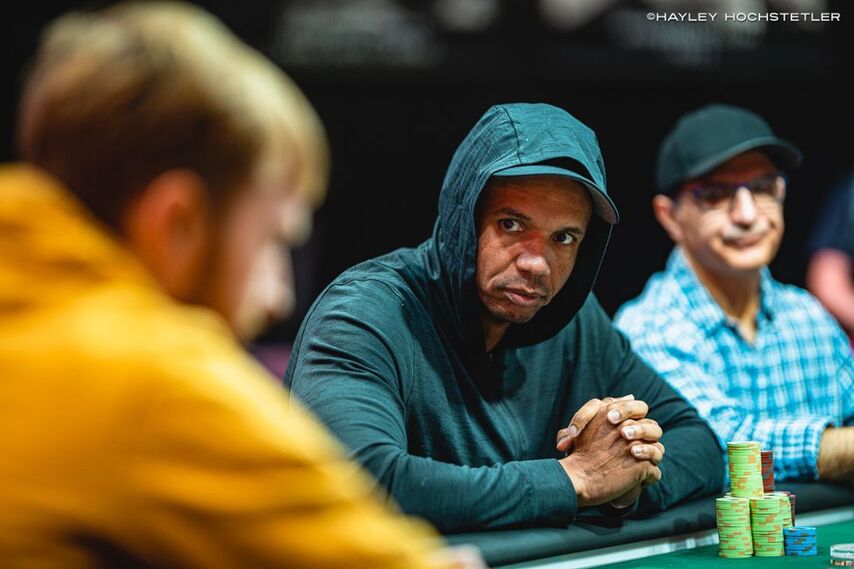
Five people entered the fifth and final day of the tournament. British multimillionaire Talal Shakerchi was the chip leader with 10,170,000 chips. The second stack was held by one of the world's strongest mixed game players Matthew Ashton with 7,380,000. He won this tournament in 2013, and he asserted his dominant status at the highest limits of eight game mix on PokerStars.
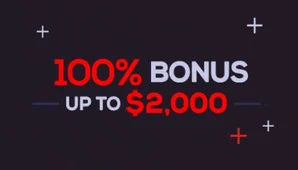

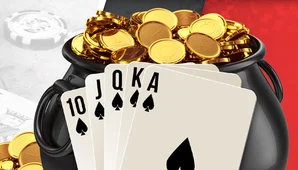
The third stack – 5,110,000 – was held by Australian James Obst, a former online star who temporarily quit poker to try professional tennis. Two-time Players Championship winner Brian Rast started fourth with a stack of 4,545,000. Live mix-game regular American Christopher Tong closed the list with the shortest stack – 2,500,000 chips, or eight big bets.
Tong refused to be a whipping boy though. In one of the first hands of no-limit hold'em, the chip leader opened to 170,000 and Tong defended the BB with . On the flop Tong check-called 140,000. On the turn he called a bet of 325,000, and on the river , he checked and called another 600,000! It was worth the defense, as Shakerchi showed .
Tong soon won another big pot by raising on the button with . Shakerchi got sticky as the chip leader, and defended the BB with .
The flop came . Talal check-called 175,000. Turn – – they both checked. On the river Talal blocked bet 225,000 and folded to a raise of 700,000.
He soon managed to win a big pot against Obst in stud high, which solidified his shaky lead.
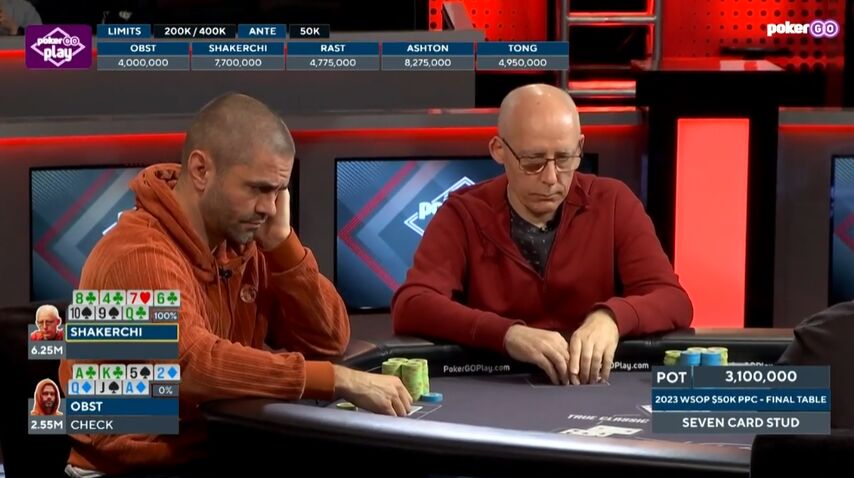
In the same game, he bested Ashton on the river and brought his stack to 11,250,000. Ashton took it back in Omaha Hi-Lo, winning two big pots from the leader, and in the second of them, Talal bet into his opponent on the board with AK-high (and lost to a full house).
The game changed to Razz, and Shakerchi's luck kept diving. Getting a top starting hand , he limp-reraised and called another raise against Brian Rast, who started with . Rast was lucky twice: he not only collected a six, but also got bets on all streets from an opponent who improved at the very end to a seven. After this hand, Shakerchi was left with the shortest stack at 3,580,000, less than 10 big bets.
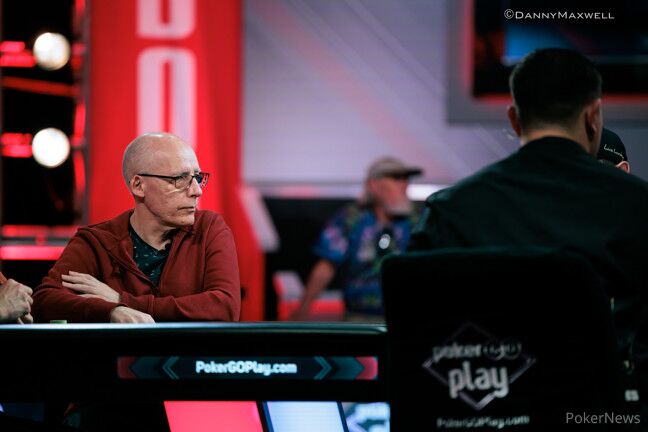
And Rast continued to destroy everyone around and by the beginning of Pot-Limit Omaha he took the lead with 10 million chips.
Omaha is not the worst game for the chip leader: the pots build up very quickly and the shorter stacks are forced to throw away a lot of equity due to ICM pressure. In one of the hands, Obst defended a beautiful two-suited hand in the BB with a call and on the flop faced a full pot bet. Top pair, two overcards to a seven (important against two pair), a gutshot, a backdoor flush draw, a backdoor straight draw, and it all had to be reluctantly folded. In fact, Obst had 40% equity: Rast had two top pair and, more importantly, five million more chips.
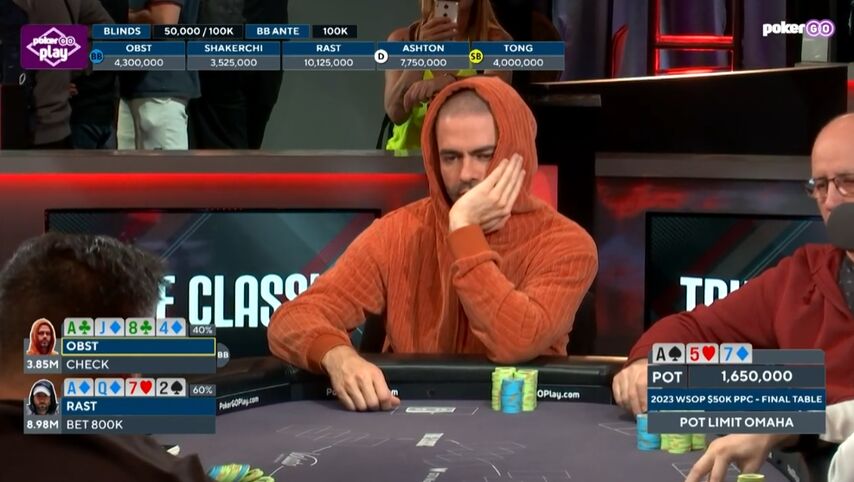
By the beginning of the limit hold'em level, only Ashton was close to Rast, the other three players rolled back into the danger zone with stacks of less than 10 big bets – that is, a maximum of two big hands. Limit Hold'em is a brutal game at this stage: the pots are played big and almost never split, and the short stacks have a very hard time.
But it’s not necessary to complicate your life the way Tong did! From the cutoff, he decided to raise two red threes into the chip leader's big blind. He called. On the flop Tong c-bet, got raised and got called. Turn – , Rast continues to bet and Tong calls again! On the river , Rast with checks, and Tong checks back. It seems that stubbornly resisting the chip leaders is typical for Tong, but this strategy is clearly not a magic pill.
Rast lost the next big pot to Shakerchi. The Brit raised from the button with , called the opponent's 3-bet, and paid three bets on the board . This call down makes more sense, but it did not work out, as Rast had .
The finalists left for the first break with the following stacks:
Rast – 14,325,000
Ashton – 7,200,000
Obst – 4,800,000
Tong – 2,600,000
Shakerchi – 775,000
2-7 single-draw didn't make much difference to the lineup, except that Shakerchi managed to triple up. Stud Hi-Lo went smoothly, which is common in games that split the pot. In 2-7 triple draw, Shakerchi continued to spin it up, winning pots against everyone except Rast, but the very first tussle with the leader dropped him back to last place. After the first exchange, Shakerchi collected the third nuts and fired three bets into the pot. Rast called, drew one card, routinely collected the second nuts, and got three more big bets from his opponent. Brian has 17,425,000, more than all four of his opponents combined.
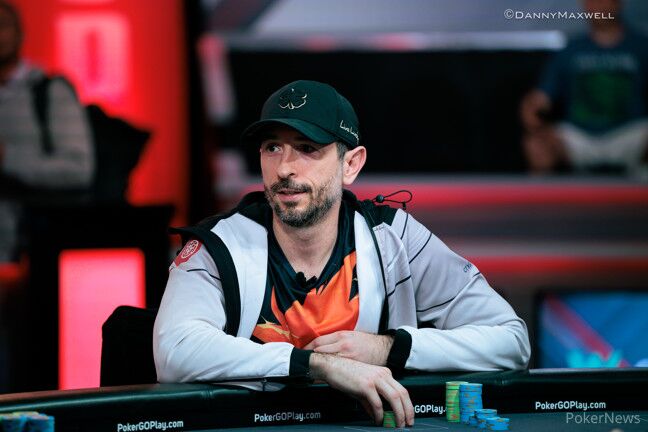
No-Limit Hold'em allows short stacks to stay out of the pot and go for all-ins. This option was taken by Tong, who shoved twice on Rast with pocket pairs. The first time Rast folded, and the second time he called and won the coin flip with AKs against two nines. Christopher Tong finished in 5th place for $303,071.
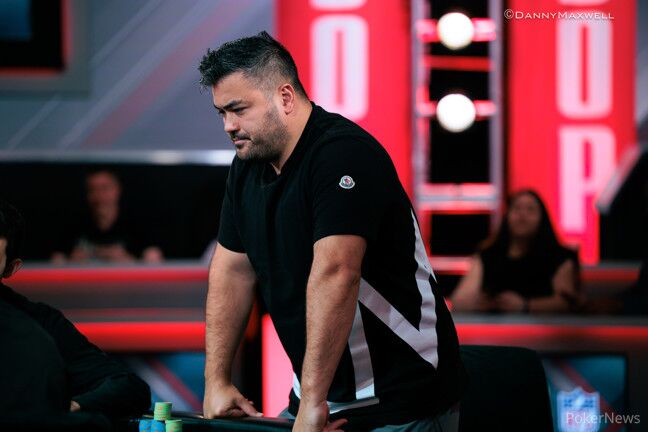
In stud-high, Shakerchi managed to win a big pot against Rast and jump to third. And then there was a hand that put an end to the hopes of the other two players.
Rast opened in Omaha Hi-Lo with a decent double-suited . Ashton 3-bet from the button with . Obst in the small blind felt that his time had come and called with . Rast also called.
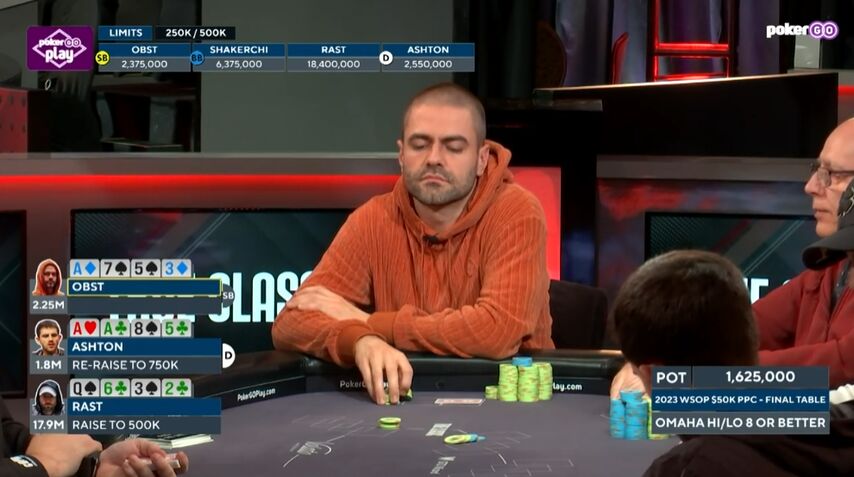
On the flop Obst didn't lead out, and the other two players gleefully checked. Turn – . With the nut flush, the Aussie bet, both opponents called – Ashton even had some equity!
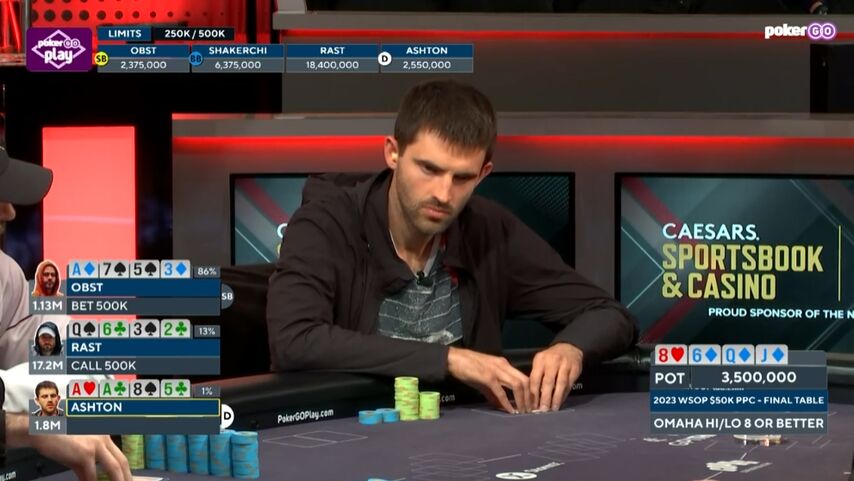
On the river came , giving Rast a full house. Obst bet and with a sigh called the chip leader's raise, leaving himself only 125,000 in chips. Ashton didn't pay for the river, but he was left with crumbs – 1,300,000 chips.
On the next hand, Obst received with the same suit and left the tournament at the hands of Rast, who entered the pot third with a subpar . He made two pair, which was enough to win.
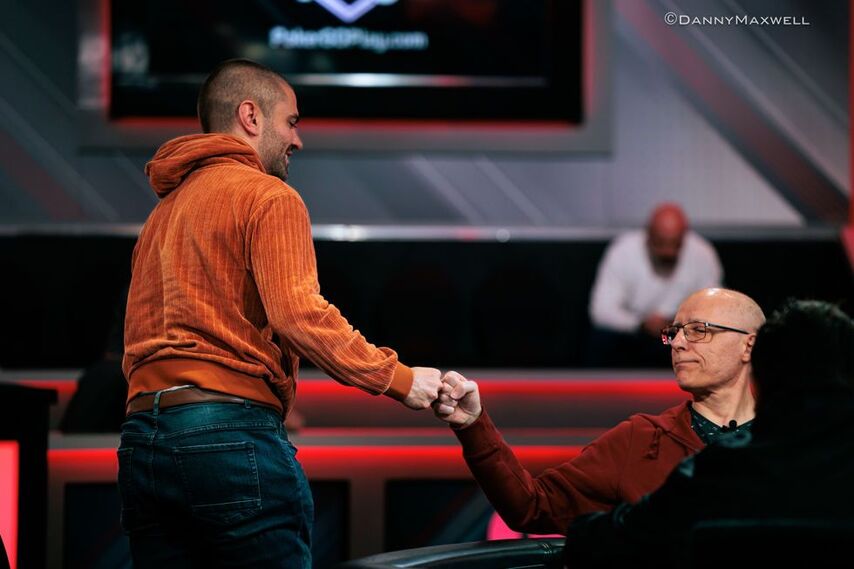
For 4th place, Obst received $411,824. And three minutes later, Ashton went to the cashier for $573,679.
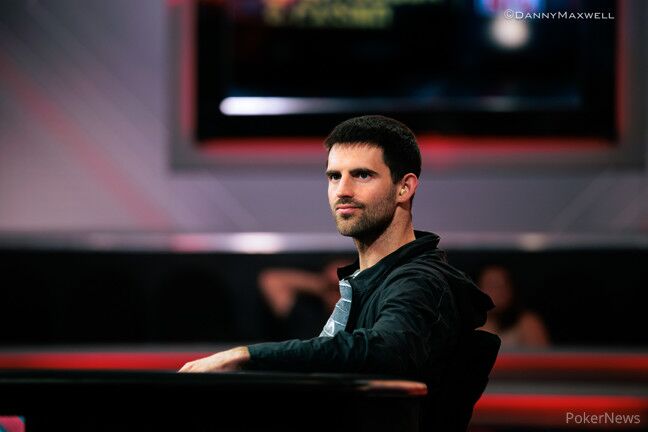
The stacks of the finalists were very unbalanced: 25,200,000 for Rast against 4,550,000 for Shakerchi.
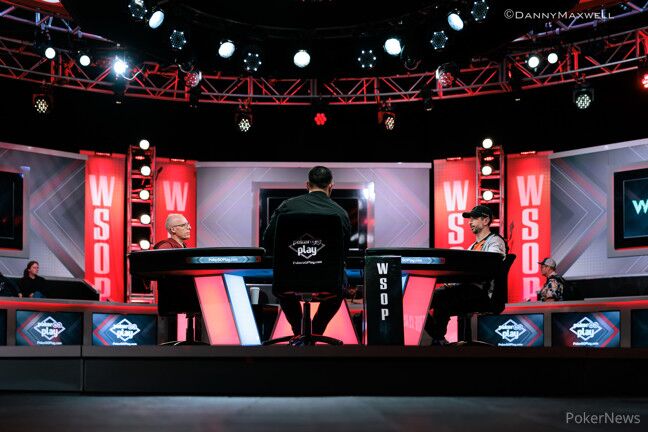
Rast halved his opponent's stack in Omaha Hi-Lo and finally finished it off in Razz: Shakerchi started with against , but on the last three streets, he caught picture cards, while Rast managed to strengthen twice.
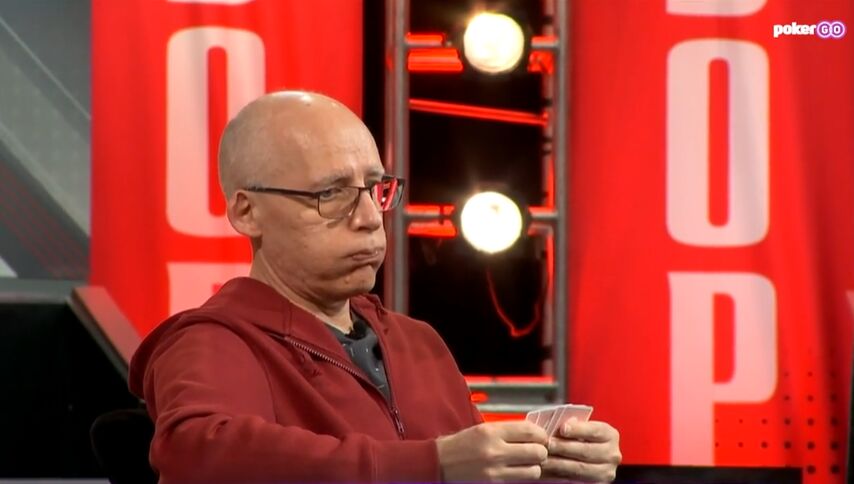
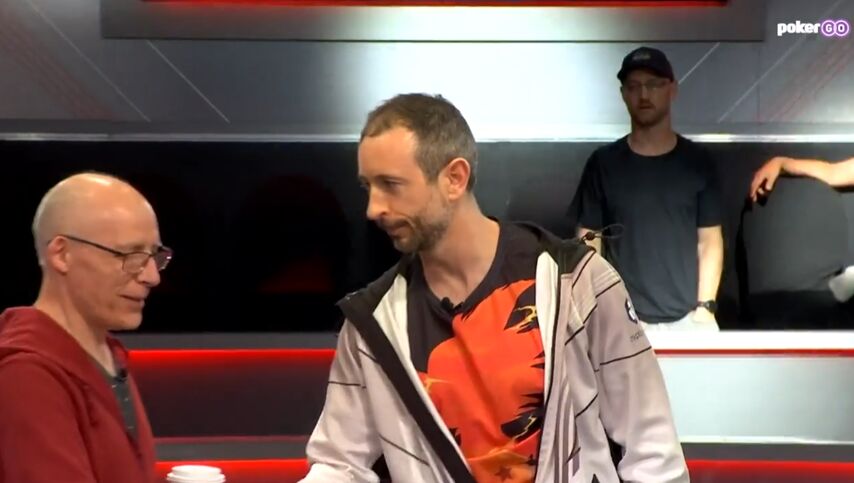
Second place earned Shakerchi $818,756 while Brian Rast earned $1,324,747, tied with Michael Mizrachi in Player Championship wins and improved his chances in the upcoming Poker Hall of Fame vote.
The final table turned out to be a dream for Rast. However, before he caught a tidal wave of strong hands, he still had to play well to get there. Six WSOP bracelets for the high-stakes cash game player, three of them in the most prestigious Mixed Game tournament for all pros, is a solid entry into the Poker Hall of Fame, where the 41-year-old Rast is nominated this year.
